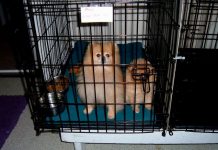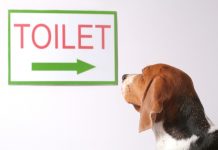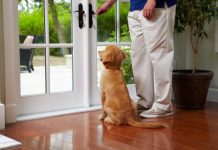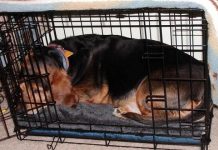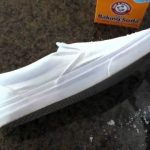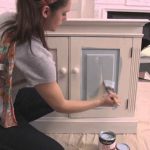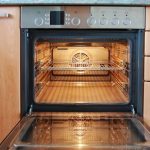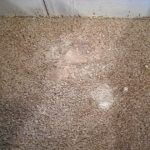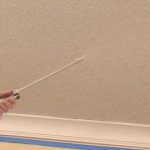In this article we will discuss how to potty train a puppy. It’s a very normal and common case for a young puppy to be a ‘input-output’ machine. As they grow and develop fast at this stage, they consume more food, burn more energy. This makes them excrete frequently. Like human kids, puppies also don’t have a developed bowel and bladder control; therefore they are not able to ‘hold it’ as long as adult dogs can do. They need time to develop the habit of not soiling your entire home. Successful house training of your puppy depends upon how attentive supervision you keep. When you potty train a puppy, its your duty to your pup where to excrete.
A puppy can’t be completely house trained until they get 6 months old. In case of some breeds, this can take more time. So, have patience while you potty train a puppy. Always stay focused on the progress you make. Below are some of the suggestions which can help you potty train a puppy. Follow them properly and regularly to get success.
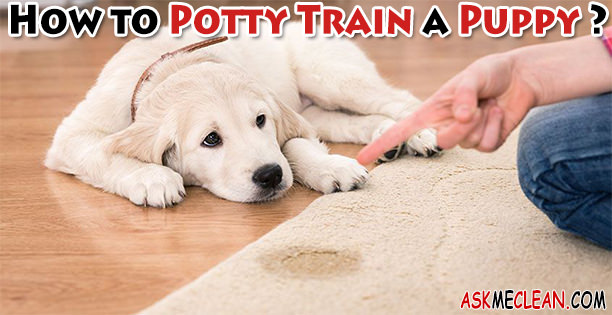
Steps and Suggestions to Potty Train a Puppy
1.) Things to Consider When You Bring Your New Friend to Home
It really brings a smile on everyone’s face in your family when you bring a pet to your house. To make your puppy settle in and make him learn to trust and respect you and everyone at your home, it is very crucial to understand his/her needs and make it understand your expectation. Being small, your pet will eliminate here and there in your house. You need to prevent his/her action by restricting the area for him. Here is what you need to do:
Suggestions:
- Show your pet those areas only where you want them to be. In starting, don’t allow your pup to roam on its own. You can do this by not showing him the bedrooms and other places which you don’t want them to spoil.
2.) Understand Your Puppy’s Behavior and Needs
- Though most of the dogs are very intelligent, but they can’t think like we do. You may find it difficult to make them understand a simple command and vice versa.in this case, you need to notice and understand how they communicate with you and study their behavior and look for the clues they give and receive from you.
3.) Keep a Check to Potty Train a Puppy
- When potty training a puppy, it is best to keep it in your surveillance. This will help you to look for early signs and behaviors about its needs to go. This will help prevent accidents. You can look for signs such as they start scratching, circling, and sniffing. When you notice any of these signs, lead your puppy outside immediately.
4.) Interrupt Your Puppy’s Accidents
- If you find your puppy urinating or defecating in your house, make a sudden noise like a clap, or say “no”. Then, immediately lead the pup outside. Remember, you just want to startle and not scare pup. Every time you see your puppy in such action, simply make the same noise. This will help break the habit.
5.) Choose a Potty Zone for your Puppy
- It is suggested to find a specific area outside your house and take your pet every time it needs to go. It is better to look for a spot which is easy to clean and is not visited by other dogs.
- This will make your puppy remember the smell of urine and it will start associating the area as its “toilet”.
6.) Praise your Puppy
It is suggested to praise your puppy every time it uses the right area for excretion. For this you can say a cheerful, happy word which makes the dog understand that it has pleased you.
7.) Remove Accidents Immediately
- In case your puppy has an accident in the house only, remember to clean the area immediately and thoroughly. This will help in preventing the pup from wanting to go again in the same area.
- Clean the area with a strong disinfectant.
8.) Use a Crate to Potty Train a Puppy
In case you are not at home or you are not able to keep an eye on your puppy, using a crate can be a great idea to potty train a puppy. Your pup will try to learn and view the crate as its “house” and will be unwilling to excrete in its area.
Suggestions:
- Make sure that the crate is just big enough for the pup to lie down, stand up and turn around easily.
- In case the crate is too big, your pup may use one area as its bathroom and another as sleeping are. In such case, you can block off extra space inside to make the right size. You can provide the rest area later when your puppy grows in size.
- Remember to limit the duration that your puppy spends inside the crate to less than 4 hours at a single time. And, it should much lesser for younger puppy. Young puppy which is under 12 weeks of age, have small bladders. They don’t have much ability to control urination.
- It is said that a puppy can control its urine for only one hour for every month old until it reach adulthood. So, if your puppy is one month old only, never leave it in a crate for more than one hour.
9.) Make a Routine to Potty Train a Puppy
Making a routine is one of the keys to potty train a puppy. When taking your pup outside, it is suggested to always use the same entrance.
Suggestions:
- Always take your pet to the same place and use the same command to make him understand.
- Make a fixed routine for taking you puppy out. Make it a first thing in the morning and after each meal.
10.) Make a Note of How Frequently your Puppy needs to go
Making a note of how often your dog needs to urinate will help you in learn their routine. This will make it easy to predict timing of its urinating.
All these small changes and routine will really help you get success in training your puppy well.

